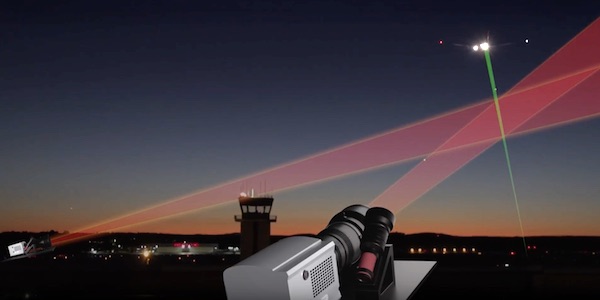Home
A comprehensive resource for safe and responsible laser use
US: MIT develops system to locate laser perpetrators using as few as two cameras, from miles away
The Laser Aircraft Strike Suppression Optical System (LASSOS) uses two or more low-light CCD sensor cameras that observe the night sky, each with a star tracker that determines the attitude of the sensor. The cameras observe a volume of airspace such as around an airport. Beam locations are identified by analyzing the two (or more) different views to find the endpoint of the laser beam.

In one test, LASSOS identified the ground location of a laser beam aimed into the sky, using two cameras located nine nautical miles away. The locations was determined within 30 seconds. The system was so accurate that it could differentiate between locations separated by only 5 meters.
A key attribute of LASSOS is that the final output is a Google Earth map with the beam and perpetrator location overlaid. This makes it easy for law enforcement to know the area they will be searching for the perpetrator.
An MIT press release gave no indication of potential installation and operational costs, and did not indicate any further plans for testing or implementation.
LASSOS was developed under Air Force Contract No. FA8721-05-C-0002 and/or FA8702-15-D-0001.
From a September 2017 MIT Lincoln Laboratory press release, reprinted below (click the “read more” link.) MIT also has a YouTube video of the system; the LASSOS description begins about 56 seconds into the video. Thanks to Greg Makhov, who brought this to our attention via a Tech Briefs article printed in January 2018.
US: Appeal of 3-year sentence hinges on "willfully" aiming vs. "willfully interfering"
The August 2012 case in the U.S. Court of Appeals for the First Circuit hinges on instructions given to the jury during Gerard Sasso’s trial in January 2010. The judge in that trial told the jury that Sasso could be convicted for willfully aiming the laser at the helicopter. The judge also said that the government did not have to prove that Sasso knew that his aiming would interfere with the pilot.
Click to read more...